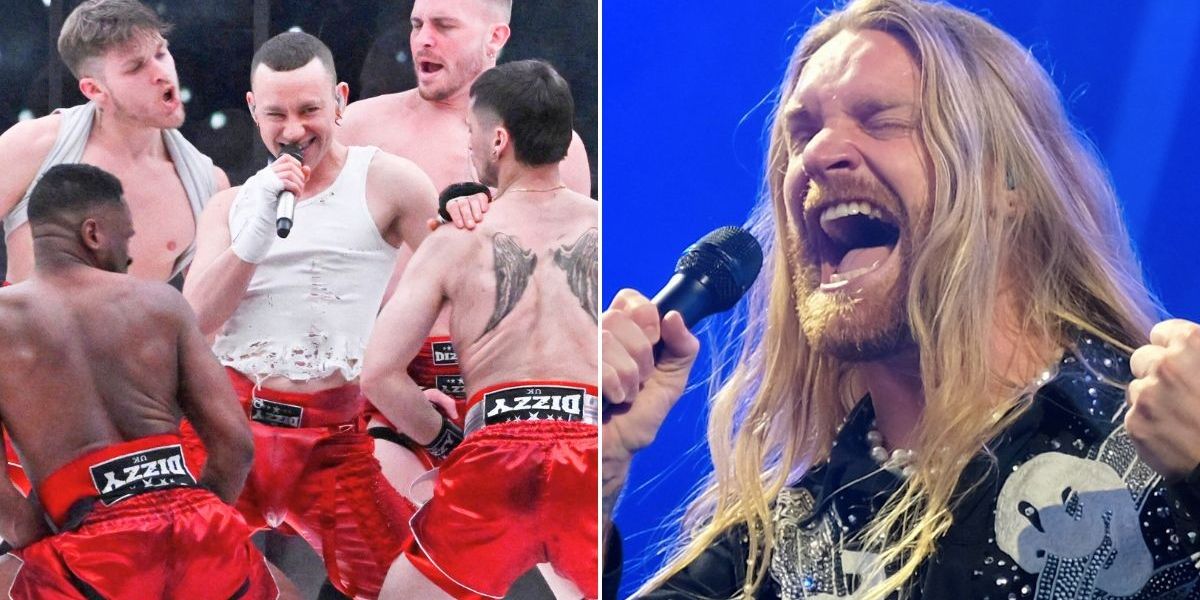The Eurovision Song Contest has finally arrived and with it comes the usual wave of false-placed optimism that Olly Alexander may be the one to recreate the glory of Cliff and Lulu.
However, two years ago, a man named Sam Ryder took to the Turin stage in Italy to belt out his toe-tapping rendition of Space Man and all of a sudden, the UK finally appeared to put decades of Eurovision hurt behind it.
The routine opened with a solo Ryder in the middle of the stage lit up by nothing but a narrow beam of light as he began to sing.
As the catchiest of all choruses arrived, the stage was illuminated by a space-like structure while Ryder remained unmoved on his platform.
There was no gyrating, no narrow wardrobe malfunctions, no satanic symbolism and no baby-oiled-up flesh.
It was a singer with an impressive set of lungs belting out a well-written, catchy tune that appealed to the masses and transcended countries and cultures.
Olly Alexander: The UK will be represented by the Years and Years singer in Malmo, Sweden
GETTY
And it was the only time in recent memory where the UK actually appeared to stand a chance of victory.
Ukraine understandably won that year as Europe showed solidarity with a country mercilessly under attack from Putin’s forces but the ever-gracious Ryder would’ve been forgiven for feeling 2022 was really his year.
The less said about 2023 the better as Mae Muller – in front of a home crowd – failed to get toes tapping so much that it wouldn’t come as a surprise if audience members complained of widespread lower-limbed pins-and-needles.
So setting 2023 aside, imagine my surprise to see that this year’s nomination to represent the UK hadn’t followed the blueprint written by Ryder.
Enter Alexander. A 33-year-old singer and actor best known for performing with pop group Years and Years, and breaking hearts in Russell T Davies’ It’s A Sin.
Alexander’s talent is unquestionable – Years and Years songs dominate every running or summertime playlist I have saved on my Spotify.
And when the announcement was made, I genuinely felt it was a brilliant choice – a young, established singer with a proven track record who holds a passion for a song contest which in recent years has been the subject of snobbery and derision by “proper” music fans.
Then he released a teaser for his track Dizzy and any hopes of a Ryder replication soon vanished.
It’s catchy enough but its blend of synth-pop and lazy lyrics feels like someone’s asked an AI programme to generate the most generic 20th-placed Eurovision song ever.
But surely several entries from this year’s contest sound like that? Maybe. But the stage show that accompanies Alexander’s Dizzy is yet another disappointing approach to trying to bag glory.
Alexander’s routine first sparked controversy when a clip from dress rehearsals was shared on the BBC’s Eurovision Instagram account.
In it, Alexander is accompanied by four topless men wearing nothing but skimpy boxing shorts and poorly tied hand wraps.
Eurovision 2024: Olly Alexander’s routine is worlds away from Sam Ryder’s 2022 stint
GETTY
When Alexander begins to sing – although it’s hard to hear over all the hip-thrusting – his dancers descend into a series of suggestive acts that Emmanuelle would be proud of.
Inevitably, the clip of rehearsals was inundated with complaints as many accused the routine of being “over sexualised”, “not family-friendly”, “cringe”, “pornographic” and basically unsuitable for primetime viewing across the continent.
And several comparisons were drawn to controversial singer Sam Smith, someone whose raunchy performance at the Brits – which included devil horns and a similar blend of bare-flesh-rubbing – sparked Ofcom complaints.
Sex sells. Everyone knows that. And Eurovision is no stranger to its fair share of – quite literally – close-to-the-bone performances from acts over the years.
Olly Alexander was elated when unveiled as this year’s Eurovision act on Strictly last year
BBC
But this from the UK feels a real letdown given the success and popularity of Ryder. It’s as if bosses looked at the country’s best performance for decades and said: “Well, we still lost, go grab the jockstraps.”
Sadly, even as a fan of Alexander’s music, I fear his popularity and clout in the music world won’t be enough to offset the damage a samey feel of electro-pop and thrusting will have on his chances of bagging Eurovision glory.
It’s as if 2022 was the wake-up call that Europe’s audiences are tired of gyrating and flesh-baring over vocal talent – and the UK is still asleep.

